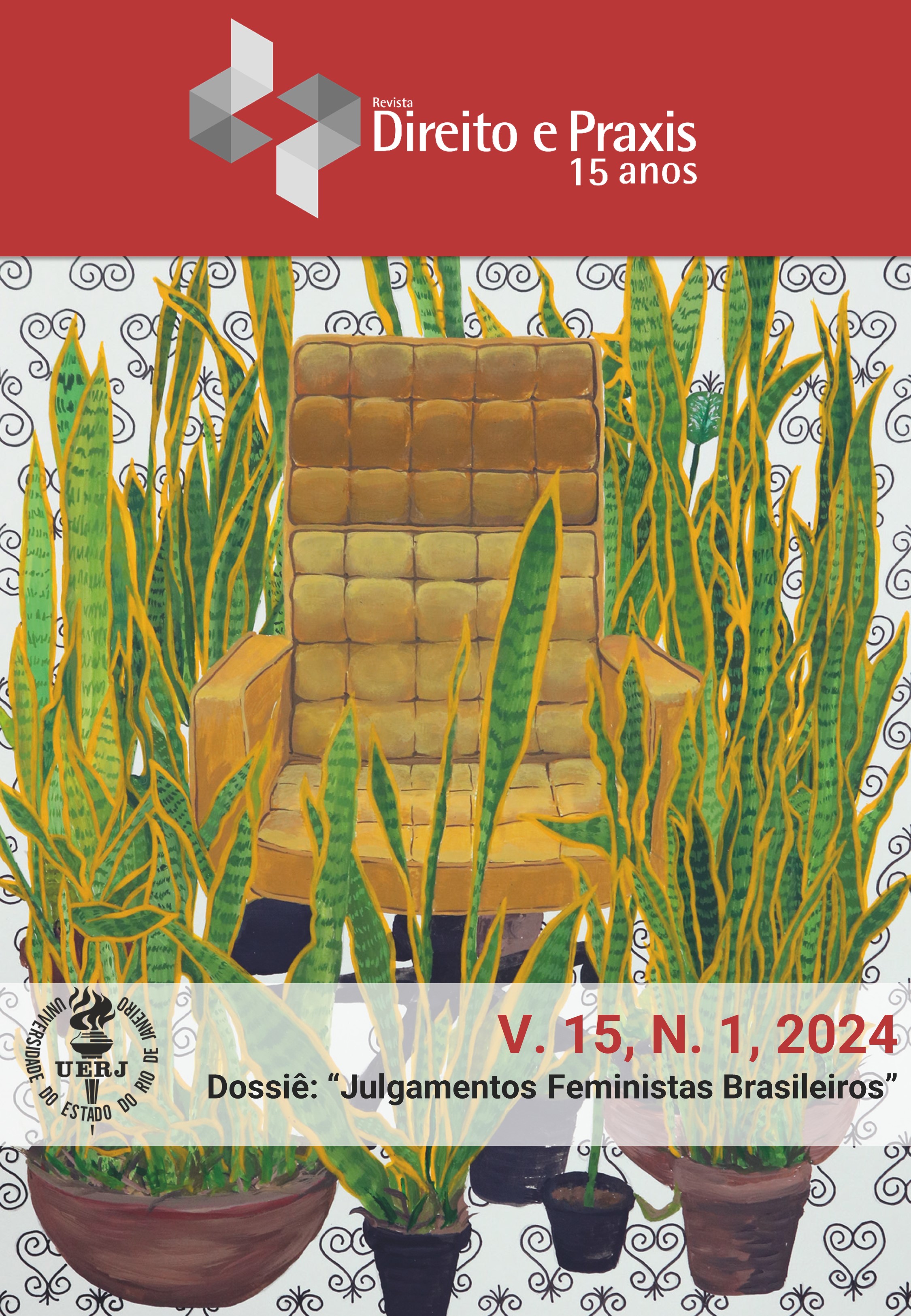O direito à alimentação na perspectiva de Emmanuel Lévinas
aportes para um debate a partir do filme “O Poço”
Palavras-chave:
Direito à Alimentação, Direitos da personalidade, Fruição, AlteridadeResumo
https://doi.org/10.1590/2179-8966/2022/64360
Aborda-se o desenvolvimento das políticas públicas face ao direito fundamental e da personalidade à alimentação, considerando a insegurança alimentar nacional no contexto pandêmico a partir do filme “O Poço”. Destaca-se o problema orientador da pesquisa: a partir do conceito de alteridade de Emmanuel Lévinas, qual crítica ética é possível elaborar diante da insegurança alimentar? A hipótese é a de que o cuidado com o Outro fica em segundo plano perante o Eu, obstando o desenvolvimento de uma sociedade alterística. Objetiva-se entrelaçar a filosofia levinasiana com o direito à alimentação e a democracia para a construção de uma crítica de dimensão ética quanto ao aumento da insegurança alimentar. Especificamente, busca-se: a) analisar as políticas alimentares brasileiras e o direito à alimentação; e b) desenvolver uma crítica ética levinasiana diante do cenário encontrado. A metodologia utilizada é a metafenomenológia levinasiana, a fim de averiguar a representação do fenômeno da fome e do Outro na consciência subjetiva do Eu. Os resultados encontrados evidenciam que a alteridade é condição de possibilidade para uma sociedade ética.
Palavras-Chaves: Direito à Alimentação; Direitos da personalidade; Fruição; Alteridade.
Abstract
Adresses the development of public food policies in Brazil with the fundamental and personality right to food, considering national food insecurity with the pandemic context from the movie “The Plataform”. The question that constitutes the research's guiding problem is raised: from the concept of alterity by Emmanuel Lévinas, which ethical critique can be elaborated in face of food insecurity? The hypothesis is that caring for the Other takes a back seat to the Self, debatehindering the development of an alteristic society. The objective is to intertwine the Levinasian philosophy with the right to food and democracy to build a critique of an ethical dimension to the increase in food insecurity. Specifically, it seeks to: a) to analyze Brazilian food policies and the right to food; and b) to develop a Levinasian ethical critique of the found scenario. The methodology used is levinasian metaphenomenological, in order to investigate the representation of the phenomenon of hunger and the Other in the subjective awareness of the Self. The results found show that alterity is a condition of possibility for an ethical society.
Keywords: Right to Food; Personality’s rights; Fruition; Otherness.
Downloads
Downloads
Publicado
Como Citar
Edição
Seção
Licença
Copyright (c) 2022 Revista Direito e Práxis

Este trabalho está licenciado sob uma licença Creative Commons Attribution 4.0 International License.
Os textos são de exclusiva responsabilidade de seus autores.
É permitida a reprodução total ou parcial dos artigos da Revista Direito e Práxis, desde que citada a fonte.
Este trabalho está licenciado sob uma Licença Creative Commons 4.0, Atribuição-Sem Derivações.
Esta licença permite copiar e redistribuir o material em qualquer suporte ou format para qualquer fim, mesmo que comercial, desde de que citada a autoria original.
This work is licensed under a Creative Commons Attribution 4.0 International License.




